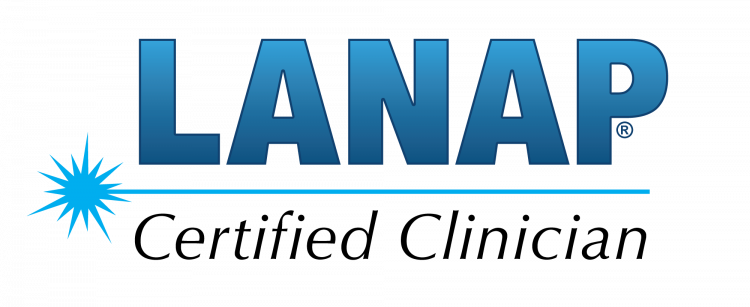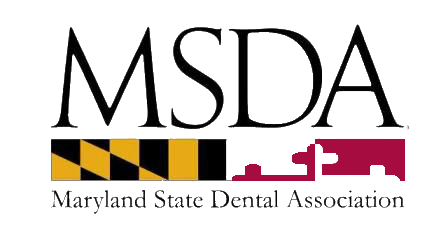Comprehensive Oral Surgery in Columbia, MD
Limited Time Offer: $50 OFF Your First Visit
Smile Savers Dentistry Offers Comprehensive Oral Surgery Services
We are pleased to welcome you to Smile Savers Dentistry where your oral health is our top priority. Our practice, led by Dr. Anuja Patel, offers a variety of oral surgery procedures to improve the health, function, and appearance of your smile. Our team of skilled professionals is committed to delivering personalized care with exceptional results, whether you need wisdom teeth removed, dental implants placed, or treatment for oral pathology.
Understanding Oral Surgery
Oral surgery is a broad term that covers a wide range of procedures performed on the jaws, mouth, and facial structures. These procedures are often necessary for conditions like:
Wisdom Teeth Removal
Wisdom or third molar teeth are often extracted due to crowding, impaction, or improper eruption. To prevent complications like pain, infection, and damage to neighboring teeth, oral surgery is used to remove impacted wisdom teeth.
Dental Implant Placement
Dental implants are an effective and popular solution to replace missing teeth. The dental implant fixture is placed into the jawbone by oral surgery. This provides a stable base for attaching a lifelike restoration, such as a bridge, crown, or denture.
Bone Transplant
A bone grafting procedure may be required to regenerate or augment the jawbone. This procedure is performed to improve the stability and success of dental implants or to replace lost bone volume due to trauma, periodontal diseases, or tooth extraction.
Treatment for Oral Pathology
Oral surgery is often recommended to diagnose and treat oral lesions, cysts, tumors, and other pathological conditions. To ensure optimal oral health, surgical intervention can include the removal of abnormal tissues, biopsy procedures, or excisions of lesions.
Orthognathic Surgery
Orthognathic surgery is also called corrective jaw surgery and it addresses functional and aesthetic issues related to the alignment of the jaws. These procedures may correct bite disorders, congenital defects, or facial asymmetry.
Treatment for Temporomandibular (TMJ) Disorders
Dental surgery can be used to treat TMJ disorders causing pain, discomfort, and dysfunction in the jaw and its surrounding muscles. Surgery such as joint repositioning or joint replacement can be used to relieve symptoms and restore jaw function.
Book your Oral Surgery Consultation Now
We can help if you need oral surgery to improve your health or aesthetics. To learn more about oral surgery and your treatment options, schedule a consultation at Smile Savers Dental with Dr. Patel. Contact us to learn more about our comprehensive oral surgery services and take the first steps towards a healthier and more beautiful smile.
Oral Surgery Our Approach
We at Smile Savers Dentistry understand that oral surgeries can be a big decision for some patients. That's why we put your comfort, safety, and well-being first throughout the entire treatment process. What to expect from our oral surgery:
Smile Savers Dentistry Oral Surgery Benefits
Improved Oral Health
Oral surgery is a great way to improve your oral health. Oral surgery can help restore and maintain oral health by addressing these concerns. This reduces the risk of complications and improves overall well-being.
Improved Function and Comfort
Many oral surgery procedures aim to alleviate pain and discomfort associated with dental conditions like impacted teeth, TMJ disorders, or bite abnormalities. Oral surgery can improve your ability to chew, talk, bite, and perform everyday activities.
Aesthetic Improvements
Some oral surgery procedures such as orthognathic surgeries or dental implant placement can also have significant cosmetic benefits. They improve the symmetry, balance, and overall appearance of smiles and facial profiles. Oral surgery can improve your smile by addressing facial asymmetry or gummy smiles.
Long-Term Solution
Oral surgery provides long-lasting and reliable solutions to many dental problems. The results are durable, reliable, and can handle daily demands. Oral surgery procedures can improve your quality of life and oral health by replacing missing teeth or correcting jaw alignment problems with orthognathic surgeries.
Personalized Support
At Smile Savers Dentistry we believe that each patient is unique. That is why we offer personalized oral surgery. Dr. Patel will work closely with you in order to fully understand your goals, concerns, and needs. He then develops a treatment plan tailored to your requirements and preferences. We are dedicated to compassionate care at every stage of your oral surgery journey, from your initial consultation all the way through to post-operative recovery.
Don't Miss out on Our Limited Time Offer:
$50 OFF First Visit
Frequently Asked Question about Oral Surgery
When is a particular procedure considered to be oral surgery?
Oral surgery is a term used to describe a procedure that involves the diagnosis or treatment of injuries and conditions within the oral and maxillofacial area. Oral surgery is the surgical treatment of conditions affecting the teeth, jawbones and facial structures.
Oral surgery includes a wide range of procedures.
Tooth extraction is the surgical removal of a single tooth. This may be required due to severe decay or infection, or because it's needed for orthodontic purposes.
Dental implant placement is the surgical insertion of a tooth root (implant), which supports a dental prosthesis such as a bridge, crown or denture.
Wisdom tooth extraction is the surgical removal of problematic or impacted wisdom teeth which may cause pain or infection.
Jaw surgery (orthognathic): Corrects jaw abnormalities such as malocclusions (improper bite), skeletal discrepancies or congenital defects.
Treatment of oral or facial infections: Surgical drainage of abscesses or cysts or removal of tumors or cysts in the oral cavity.
Corrective jaw surgery is a surgical procedure that aims to improve the alignment and function of the jaw joint.
While some dental procedures can be performed by general practitioners, more complex surgical procedures require special training and expertise. They are therefore usually performed by maxillofacial or oral surgeons. It's best to consult a dentist if you have any dental concerns or conditions. They can provide an accurate diagnosis as well as appropriate treatment recommendations.
What are some of the most common types and reasons for oral surgery?
Oral and maxillofacial surgery includes a variety of common procedures. Oral surgery may be required for a variety of reasons including dental health concerns, functional concerns or aesthetic purposes. These are the most common oral surgeries and their uses:
Tooth extraction involves surgically removing a tooth. This may be required if the tooth is badly decayed, has an infection, or is impacted (unable emerge fully). It could also be needed if it causes crowding, alignment, or crowding issues.
Dental implant placement. Dental implants are artificial roots that are surgically placed into the jawbone. They are used as a base for dental prostheses such as crowns, dentures, and bridges. Implants can be used to replace missing or damaged teeth, improve speech and oral function, and restore chewing abilities.
Wisdom tooth removal: Wisdom teeth (also known as third molars) are often impacted, or they don't have the space to properly emerge. They can lead to pain, infection, decay, gum disease or damage of adjacent teeth. To alleviate the pain, a surgical extraction is performed.
Orthognathic surgery: Corrective jaw surgery corrects significant misalignments of the jaw or skeletal discrepancies which affect speech, facial aesthetics, chewing, and speaking. The upper jaw (maxilla), the lower jaw (mandible), both, or neither can be repositioned to improve facial balance and correct malocclusion.
Treatment of oral and face infections: Surgery may be needed to drain or remove cysts, tumors or infected tissue within the mouth or facial structures. Treatment is important to prevent infection spread and promote healing.
TMJ Disorders: If conservative treatment fails to improve severe TMJ problems, surgical intervention may be recommended. These procedures are designed to correct jaw alignment and address TMJ-related pain or dysfunction.
Bone grafting is a surgical procedure that involves the addition of bone graft to areas where there is insufficient bone volume. This procedure is usually performed prior to or during the placement of dental implants in order to provide proper support and stability for them.
There are many other oral and maxillofacial surgeries that are performed depending on the individual case and need. Consult a dentist to determine if oral surgery is necessary for your particular condition.
What is Maxillofacial Surgery?
Maxillofacial Surgery, also called oral and maxillofacial (OMS), focuses on diagnosing, treating, and managing conditions that affect the head, the face, the jaws, the mouth, and other associated structures. It combines dental and medical knowledge, as well as techniques and skills from medicine and surgery.
Maxillofacial Surgeons are highly-trained professionals who have undergone extensive training and specialized programs in order to gain expertise and knowledge of a variety of conditions, as well as complex surgical procedures performed within the facial and oral region. Maxillofacial surgeons often work with other medical and dentist specialists to provide comprehensive treatment for their patients.
The scope of maxillofacial surgeries includes:
Facial trauma is the evaluation, treatment and reconstruction of facial injuries caused by accidents, falls, sports incidents or other traumas. This may involve the repair of fractures in the facial bones or soft tissue injuries.
Orthognathic surgery is the surgical correction of jaw discrepancies (malocclusion) which may lead to functional problems, aesthetic concerns or sleep apnea. Repositioning of the jaws is required to achieve facial balance, alignment and optimal function.
Dental implant surgery is the placement of artificial teeth roots into the jawbone in order to support dental prostheses such as crowns, bridges or dentures. Maxillofacial surgery is specialized in bone grafting and implant placement.
Treatment of maxillofacial and oral pathology: Diagnosis, management, and treatment of different diseases, infections and abnormalities of the facial and oral structures. It may be necessary to remove the damaged or diseased tissues, and then reconstruct them if needed.
TMJ disorders: Diagnosis of conditions that affect the temporomandibular joints and their associated structures. Maxillofacial surgery may be performed to treat severe TMJ disorders which do not respond to conservative treatment.
Maxillofacial surgery may offer cosmetic procedures to improve facial appearance such as facelifts (facelifts), rhinoplastys (nose surgery), eyelid surgery, and chin augmentations.
Here are a few examples to show the wide range of procedures and conditions that can be performed in maxillofacial surgeries. Maxillofacial surgery is a collaborative effort between other healthcare professionals such as dentists, orthodontists and plastic surgeons to treat patients with complex facial and oral needs.
What happens during oral surgery?
The specific procedure performed during oral surgery will vary depending on the case and condition that is being treated. There are some common steps that occur in oral surgery. This is a general overview on what happens during oral surgeries:
Consultation and evaluation before surgery: You will consult with the oral surgeon prior to the procedure. The oral surgeon will examine your dental and medical history and perform a thorough exam. They may also order diagnostic tests, such as X rays, CT scans or blood tests, to evaluate your condition.
Anesthesia: Different types of anesthesia are used depending on the complexity and comfort level of the procedure. Local anesthesia, which involves numbing a surgical area, is used most commonly for minor procedures. For more complex procedures, general anesthesia is administered. You will then be completely unconscious and monitored during the entire procedure.
Access and incision: The oral surgeon will perform an incision to gain access to a surgical site. The incision can be made intraorally (inside of the mouth) or externally (such as on the skin outside the mouth).
Surgical Procedure: The surgical steps vary depending on the type of procedure. Oral surgery procedures can include tooth extractions, dental implants, corrective jaw surgeries, and treatment of facial or oral infections. The surgeon will use their specialized instruments and skills to treat the condition. This may include removing tissue, reshaping bones, repairing fractures or grafting.
Hemostasis: Controlling bleeding is a key aspect of oral surgery. The surgeon will manage any bleeding that occurs during the procedure by using techniques like suturing, cauterization or hemostatic agents. The incisions are closed with sutures, or another closure method.
Recovery and postoperative care: You will be closely watched in the recovery area after surgery. Oral surgeons or their teams will give you instructions for postoperative care. This includes how to manage pain, swelling and bleeding. If needed, they may prescribe painkillers or antibacterials. To monitor the healing process and to ensure a proper recovery, follow-up appointments are scheduled.
The specifics of an oral surgical procedure will vary depending on the patient's case and the severity of the condition that is being treated. Before the surgery, the oral surgeon will explain the procedure and its expected outcome, as well as any risks or complications.
What options are available for anesthesia during my oral surgery?
Different anesthesia options are available during oral surgery depending on the type of procedure, your medical background, and how comfortable you feel. These are the most common types of anesthesia used during oral surgery.
Local anesthesia. Local anesthesia is used in minor oral surgery procedures. An anesthetic, such as lidocaine will be injected by the oral surgeon directly into the surgical site to numb nerves and tissue. You will not feel any discomfort during the procedure, even though you are conscious. Although you may feel some pressure or movement in the treated area, it will be completely numb.
Nitrous Oxide (Laughing Gas): Nitrous dioxide, also known as laughing gases, is a mildly sedative gas. It is inhaled by wearing a mask over the nose. It makes you feel more relaxed and comfortable. Nitrous oxide can be used with local anesthesia. Its effects are short-lived, so you can resume your normal activities soon after the procedure.
Intravenous Sedation (IV): IV sedation is administered by injecting sedatives directly into the veins of your arm or hands. This type of sedation can cause a state of deep relaxation, and even a partial or complete memory loss. The IV sedation technique allows you to be conscious, but also deeply relaxed throughout the procedure. This is often used in more complex or extensive oral surgery procedures, or when patients are anxious or afraid.
General anesthesia: This is anesthesia that renders the patient completely unconscious during surgery. Typically, it is administered via intravenous medication and inhaled gas. General anesthesia is reserved for complex oral surgery, such as multiple extractions or extensive jaw reconstruction. An anesthesiologist, or other qualified anesthesia provider, closely monitors vital signs during general anesthesia.
Your oral surgeon will recommend anesthesia based on a number of factors, including the complexity of the procedure, your medical background, your level of anxiety, or discomfort, and your preferences. Your oral surgeon will assess your case, go over the options available with you and then make a recommendation that is based on what you want and need.
You should disclose all of your medical history to Dr. Patel, including medications and previous anesthesia experiences. This will ensure that you receive the most appropriate and safest anesthesia.
Can I drive myself home after oral surgery?
It is generally not recommended that you drive yourself home following oral surgery. This is especially true if you've received general anesthesia or sedation. Anesthesia and sedation may impair coordination, reflexes and judgment.
Following are some guidelines for driving after dental surgery.
Local anesthesia and nitrous dioxide: If your oral surgery was only performed under local anesthesia, or with nitrous oxygen (laughing gasses), you may be able to drive home. It is best to arrange alternative transportation or have someone accompanying you, especially if the procedure leaves you feeling groggy.
You will be told not to drive home if you have received intravenous (IV), sedation, or general anesthesia. These types of anesthesia may cause drowsiness and confusion and can affect your motor skills or reaction time. You should have a responsible adult with you, and arrange a designated driving or alternative transportation.
Postoperative medications. You may also be prescribed medications to reduce pain or that cause drowsiness. These medications can make you unable to drive safely. Follow your oral surgeon’s directions regarding driving restrictions and medication use.
Always remember that your safety, and the safety on the road of other drivers is the most important thing. If you've had anesthesia, are on medication that could affect your driving ability, it is best to take a ride from a friend or family member.
Your oral surgeon will give you specific instructions regarding postoperative care, including driving and transportation recommendations. Follow these instructions carefully to ensure a smooth and safe recovery.
How can I reduce the pain and discomfort following oral surgery?
It is normal to feel some discomfort and pain after oral surgery. There are a few steps you can do to reduce pain and make your recovery more comfortable. Here are some tips on how to manage your pain and discomfort following oral surgery.
Follow the instructions given by your oral surgeon. These instructions could include guidelines for medication use, wound care and dietary restrictions. These instructions will help to minimize complications and promote quicker healing.
Take pain medication as prescribed by your oral surgeon. To avoid any discomfort, take the first dose prior to the local anesthesia wearing off. To maintain pain relief, follow the dosage and timing recommended by your oral surgeon. Contact your oral surgeon if you experience any side effects or have concerns.
Cold compresses can be applied to the outer part of the face, near the surgical site. This will help to reduce swelling and numb that area. It also provides pain relief. Apply a clean, thin cloth wrapped around an ice pack for 15-20 minutes each time. To prevent frostbite, avoid placing ice directly onto the skin.
Swelling after oral surgery is normal. Keep your head elevated by using an extra pillow while sleeping or resting. Avoid activities that are strenuous, hot drinks, and spicy food. These can cause swelling. You may be advised to rinse with saltwater solution by your oral surgeon in order to reduce swelling.
Stick to liquids and soft foods for the first few days following surgery. This will minimize discomfort and help prevent injuries to the surgical area. Choose foods such as yogurt, smoothies and mashed potatoes. Also, consider soups or protein shakes. Avoid spicy, hard, or crunchy food, as well as foods with high acidity.
Maintain good oral hygiene. Good oral hygiene will help you heal and prevent infection. You should follow your oral surgeon’s instructions for how to take care of your mouth following surgery. You may be instructed to rinse with saltwater or antimicrobial mouthwash, and not brush near the surgical area for the first couple of days.
Avoid activities that could disrupt healing. To ensure proper healing and reduce pain, you should avoid activities that may disrupt the surgical area. Avoid smoking, using straws or spitting with force. These actions may interfere with the formation of blood clots or increase pressure in the surgical area.
Rest and recuperate: Give yourself enough time to recover and rest after your oral surgery. Avoid physical activity that can cause swelling and pain. Take frequent, short walks and get plenty of rest to prevent blood clots and promote circulation.
You should be aware that each individual and surgical procedure are unique and may have different recommendations for pain control. Consult your oral surgeon to get personalized advice and guidance tailored to your case.
Contact your oral surgeon immediately if you have severe pain or bleeding or other symptoms that are concerning.
How long will it take for me to recover after oral surgery?
Recovery time after oral surgery can be affected by factors like the type of procedure and your health. Understanding the general timeline can ensure a smoother recovery. Here are some tips and a guide for recovery after common oral surgery procedures:
Tooth extraction: Recovery from a simple extraction usually takes 7-10 days. The healing process can be affected by factors such as the location of the extraction and its complexity. Maintain good oral hygiene and follow the postoperative instructions given by your oral surgeon. Avoid activities that could disrupt healing.
Recovery time after wisdom tooth removal is usually between 1 and 2 weeks. The healing time can vary depending on the factors such as the position of the impacted tooth and the individual. A smooth recovery can be achieved by maintaining good oral hygiene, managing pain, and following dietary restrictions.
Recovery from dental implant surgery may take several months. The process of osseointegration (the fusion of the implant with the jawbone) usually takes between 3 and 6 months. After implant surgery, adhering the treatment plan, maintaining oral health, attending follow-ups, and attending follow-up appointments will contribute to a successful healing.
Orthognathic jaw surgery: The recovery period is usually longer after orthognathic surgeries. The recovery can last from a few weeks to several months. This involves reducing swelling, managing discomfort, adhering to a mild diet, and following the specific postoperative instructions given by the oral surgeon.
Treatment of facial and oral infections: The recovery time for surgery to treat facial and oral infections depends on a number of factors, including the severity of infection and the procedure. Healing can take from a few days to a few weeks. For a successful recovery, it is important to take care of the wound, manage pain, and follow any prescribed antibiotics.
Individual experiences can vary. Your oral surgeon will give you personalized instructions for your postoperative care. These may include guidelines on pain management, wound-care, and diet. To promote healing and reduce complications, it's important to closely follow the instructions.
Contact your oral surgeon if you are experiencing any unusual symptoms, such as prolonged or severe discomfort, bleeding, swelling or other concerns. Your oral surgeon will give you tailored advice that is based on the unique circumstances of your case. This will promote a successful and speedy recovery.
Check Us Out on Social Media!
Contact Us
Smile Savers is accepting new patients however, we DO NOT accept HMO's, Medicaid, or other State Insurance Programs. If you require financial assistance please contact our office regarding our membership plan and financing options.









